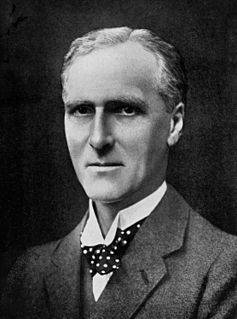A Quote by Rudolf Steiner
In the life of our organism, we are continually dealing with a development of force followed by a state of equilibrium. Of course, the human being has no conscious knowledge of what is really going on within him, but what takes place is so infinitely wise that the cleverness of the human ego is nothing by comparison.
Related Quotes
If human life is in fact ordered by a beneficent being whose knowledge of our real needs and of the way in which they can be satisfied infinitely exceeds our own, we must expect a priori that his operations will often appear to us far from beneficent and far from wise, and that it will be our highest prudence to give him our confidence in spite of this.
Every civilized human being, whatever his conscious development, is still an archaic man at the deeper levels of his psyche. Just as the human body connects us with the mammals and displays numerous relics of earlier evolutionary stages going back to even the reptilian age, so the human psyche is likewise a product of evolution which, when followed up to its origins, show countless archaic traits.
I believe in recognizing every human being as a human being--neither white, black, brown, or red; and when you are dealing with humanity as a family there's no question of integration or intermarriage. It's just one human being marrying another human being or one human being living around and with another human being.
A human being - what is a human being? Everything and nothing. Through the power of thought it can mirror everything it experiences. Through memory and knowledge it becomes a microcosm, carrying the world within itself. A mirror of things, a mirror of facts. Each human being becomes a little universe within the universe!
The human organism is thus still developing biologically while already standing in a relationship to its environmont. In other words, the process of becoming man takes place in an interrelationship with an environment. (...) From the moment of birth, man's organismic development, and indeed a large part of his biological being as such, are subjected to continuing socially determined interference.
Modern man, seeking a middle position in the evaluation of sense impression and thought, can, following Plato , interpret the process of understanding nature as a correspondence, that is, a coming into congruence of pre-existing images of the human psyche with external objects and their behaviour. Modern man, of course, unlike Plato , looks on the pre-existent original images also as not invariable, but as relative to the development of a conscious point of view, so that the word "dialectic" which Plato is fond of using may be applied to the process of development of human knowledge.
Every type of destruction that human philosophy, human science, human reason, human art, human cunning, human force, and human brutality could bring to bear against this Book, and yet the Bible stands absolutely unshaken today. At times almost all the wise and great of the earth have been pitted against the Bible, and only an obscure few for it. Yet it has stood.
Love is the movement within life that carries us, that enables us, that causes us to break out of what Alan Watts calls the “skin-encapsulated ego.” Without love, we are self-centered, but love enables us to move the center of our lives outside our ego. Therefore it expands our lives and, needless to say, enriches it. Any human being would give anything to love or be loved. When it really happens, it is like heaven on earth.
You see this incredible capacity for replication in nature, survival, development, all of these things that are around us all the time in nature that just happen. By comparison, human life is really, really complicated. We're gifted animals, but we are so complicated. Nothing is easy for us, except maybe eating too much.
Everyone recognizes a distinction between knowledge and wisdom. . . Wisdom is a kind of knowledge. It is knowledge of the nature, career, and consequences of human values. Since these cannot be separated from the human organism and the social scene, the moral ways of man cannot be understood without knowledge of the ways of things and institutions.
Chess is a unique battlefield for human minds and computers - human intuition, our creativity, fantasy, our logic, versus the brute force of calculation and a very small portion of accumulated knowledge infused by other human beings. So in chess we can compare these two incompatible things and probably make projections into our future. Is there danger that the human mind will be overshadowed by the power of computers, or we can still survive?









































